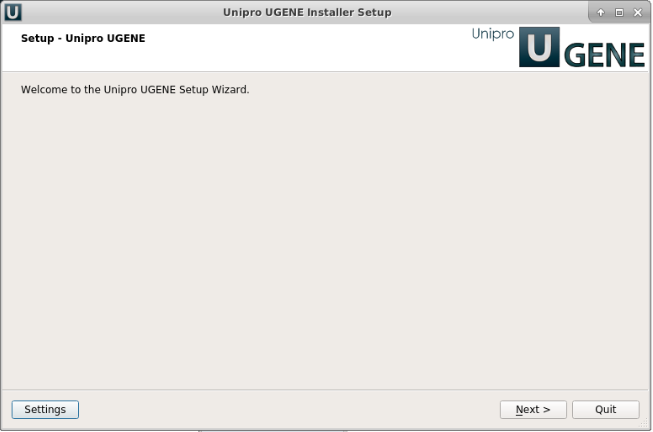The following UGENE package delivery types are available on Linux:
- Online installer: updates to new versions are supported
- TAR.GZ archive: does not require Internet connection to be installed
- Native installation: available for Ubuntu and Fedora only, provides closer integration with the operating systems, requires administrative rights
Download links for the online installers and TAR.GZ archives are available on the "Download UGENE and components" page. Be careful to select a link for correct platform (64-bit or 32-bit).
Information about native installation on Ubuntu and Fedora is provided below.
Installation using online installer
- Download the online installer file for your platform (64-bit or 32-bit).
- Make the file executable - in the Terminal run "chmod +x installer_file_name".
Execute the file: "./installer_file_name". For example:
cd ~/Downloads chmod +x ugeneInstaller_64bit ./ugeneInstaller_64bit
- Follow the installation wizard.

On a new UGENE version release, a notification will appear with an option to update the package.
Installation using TAR.GZ archive
Download the required TAR.GZ archive. Choose Standard, Full, or NGS package for your platform (64-bit or 32-bit). Note that the NGS package is available for 64-bit platform only.
- Unpack the archive - in the Terminal run "tar -xf archive_file".
From the unpacked folder run "./ugene -ui" (here "ui" states for "User Interface"). For example:
cd ~/Downloads tar -xf ugene-current-version-x86-64.tar.gz cd ugene-current-version ./ugene -ui
On a new UGENE version release, a notification will appear. However, to install the new version, it is required to manually download the package again.
Native installation
UGENE is a part of Ubuntu and Fedora distributions. Follow the instructions below to install it on one of these systems.